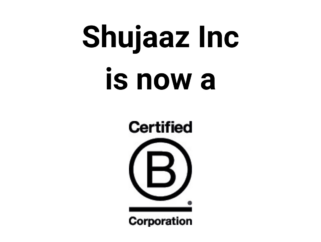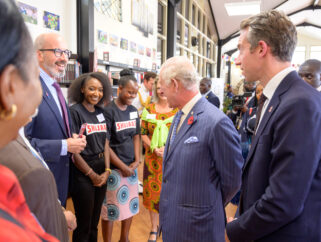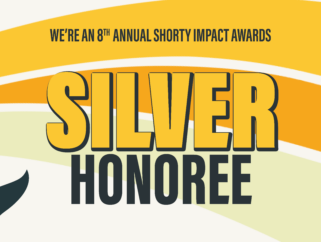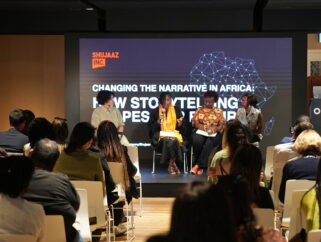10 top tips for researchers who want to change the world [ARCHIVE]
- 15 Feb 2016
Let’s face it, a lot of research just gathers dust on a shelf. An analysis of World Bank publications once showed that a third had never been downloaded, by anyone – ever! Most researchers I meet want to change the world, it’s just that very few of them know how. They sweat blood doing the heavy lifting of analysing massive datasets and wait for what feels like forever for the results of longitudinal panel surveys. The last thing they want is for their research to go unnoticed.
So here are 10 top tips for researchers who want to change the world:
1: Make recommendations: Even if your funder has only commissioned analysis, always offer a ‘so what?’ or a ‘moral of the story’.
2: Say what you know: Every research paper seems to end by concluding that “more research is required” but be clear up front what you’ve found out. Don’t bury your conclusion underneath a long explanation of what you couldn’t find out.
3: Offer up bite-size chunks: Just because you spent months and months working on a fifty page report, don’t expect the reader to spend hours reading it. To make your research digestible, it needs to be presented in bite-sized chunks and not just a token executive summary.
4: Blog about the problems you’re trying to solve: Don’t just take it from me: even academics at the London School of Economics are blogging about why it is important that academics write blogs.
5: Live Tweet your literature reviews: Most researchers start a project by disappearing into the university library for months on end, in order to complete a literature review. But social media lets you do this in a public space, out in the open. When you find a study you think is worth referencing, tweet about it. That way, your peer review process begins at the start. Other experts in the field can warn you about more recent studies, dubious methodology or even better datasets.
6: Edit Wikipedia: People looking for answers, ask Google but find out via Wikipedia. Google will usually throw up a Wikipedia page at the top of most subject/topic searches. If your research is going to be seen and read, make sure it features on Wikipedia pages about the topic or subject you are studying.
7: Get a LinkedIn profile: LinkedIn is sometimes described as ‘Facebook for grown-ups’, which is a bit misleading, but there’s something in it. LinkedIn is certainly ‘social networking for professionals’. Your research institute or university department might not allow you to list all of your publications and paper citations but LinkedIn does. This is the place for socially acceptable professional self-promotion.
8: Visualize your data: Next time you’ve got 15 minutes, watch this animation and marvel at the use of data in the storytelling. Then think about your own data and draw it on the back of an envelope. Congratulations, you’ve just made a storyboard. Collecting, cleaning and interpreting data is the difficult bit, you can commission data visualization far easier than you think.
9: Say yes to – and solicit – broadcast interview requests: TV and radio stations don’t want to interview you about your research, but they do need ‘talking-heads’ who are experts on topics in the news. During an interview, you’ll get the chance to mention your research findings, but you won’t get invited on to the show to just blow your own trumpet.
10: Communication is your job: Don’t leave your Comms to the Comms professionals. Get self-sufficient and take control. Use editors, take advice and coordinate your efforts but the responsibility for communicating your research lies with you.
11: Every ‘act’ of changing the world requires an ‘actor’, so write your research for the people you think could, and should, act on it. Send it to them. Engage them. Listen to them. That’s how research changes the world.
Richard Darlington is Head of Strategic Communications at Well Told Story





